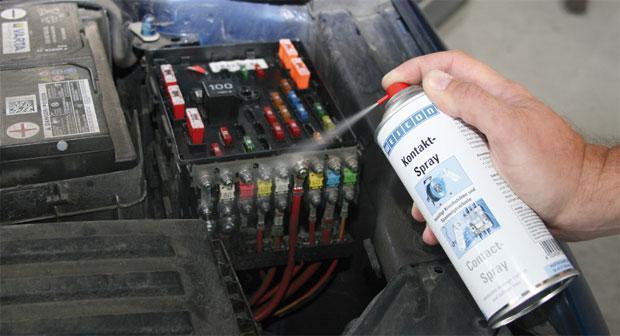
Lubricant for electrical contacts. We protect the terminals and connectors of the car
Where to use?
The main area of application for contact lubricants in automobiles is battery terminals. It is the electrical contacts of the battery that often become a problematic place in the wiring of a car. Given that the battery terminals are made of lead, and the contacts of the power wires can be iron, aluminum or copper, these elements are especially actively oxidized.
Excessive oxidation leads to two main negative consequences.
- The contact patch between the terminal on the battery and the contact on the power wire is reduced. Due to the decrease in the cross section, this area begins to actively heat up. Local melting may form.
- The battery loses its ability to deliver electricity in the amount necessary for the normal operation of the starter and the electrical equipment of the car in general. Sometimes this is erroneously interpreted by the wear of the battery itself. And the car owner buys a new battery, although it was enough just to clean and process the contacts.
Conductive grease is actively used by motorists when processing all detachable car wiring connections. It is not uncommon for a car to completely fail due to a broken contact in the wiring of an electrical appliance, or its operational capabilities are seriously reduced. For example, outdoor lighting that fails at night due to oxidation of the wiring will make driving on public roads almost impossible (or extremely dangerous).
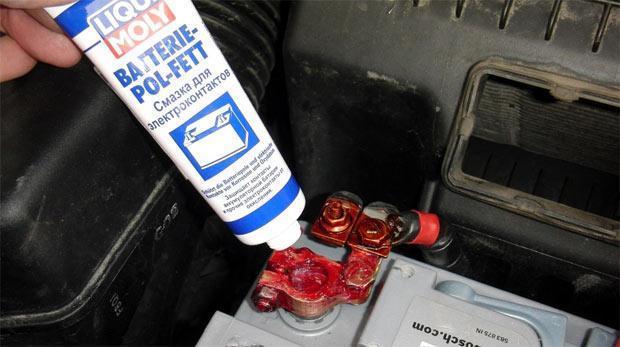

Principle of action and beneficial effect
Despite the fact that lubricants for electrical contacts from different manufacturers have different chemical compositions, the principle of their operation is approximately the same. Below are the main functions of lubricants:
- displacement of moisture;
- isolation from water and oxygen, which significantly reduces oxidative processes;
- protection against such a phenomenon as current leakage;
- decrease in contact resistance in the contact patch of the terminals;
- penetration into oxide and sulfide deposits, which stops corrosion processes and liquefies deposits on the contact surface.
That is, after treatment with such a lubricant, the oxidative processes in the contacts are greatly slowed down or stopped altogether. This significantly increases the reliability of the car wiring and extends the life of the terminals and contacts.
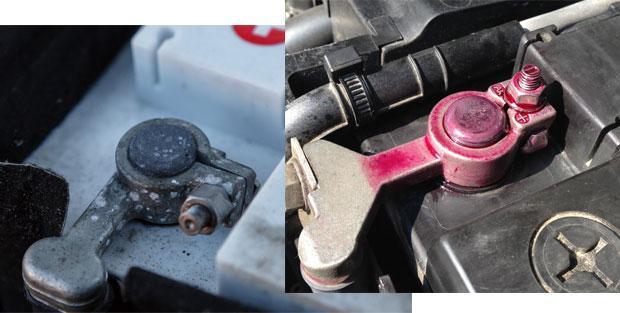

Liqui Moly lubricant and its analogues
Let's look at a few popular lubricants used for automotive wiring contacts, starting with the most famous and suitable for this purpose.
- Liqui Moly. The manufacturer produces conductive lubricants in two forms: an aerosol (Electronic Spray) and a gel (Batterie-Pol-Fett). Grease is more effective in the long run, as it is resistant to water washout and will only run off spontaneously when heated to 145°C. However, it is inconvenient to use grease for hard-to-reach places, since it must be applied by contact. Aerosols are well suited for quick treatment of contact surfaces, including hard-to-reach ones. But the effect of aerosols is short-lived. For effective protection, it will be necessary to process contacts at least once every 1 months.
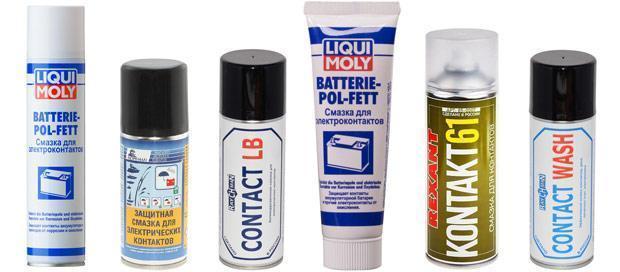

- Solid oil or lithol. These are traditional lubricants for battery terminals and other car contacts. They are not entirely suitable for such purposes, as they do not provide sufficiently reliable protection against oxidation and dry out rather quickly. Requires frequent updates. Used mainly by drivers of the old school.
- graphite lubricant. The main disadvantage of this oxidation protection agent is the partial electrical conductivity and the low dripping temperature. Suitable for processing single contacts (battery, starter, generator). Lubrication of small, multi-pin chips can cause current leakage with associated electronics failure.
- Grease for protecting electrical contacts EFELE SG-383 Spray.
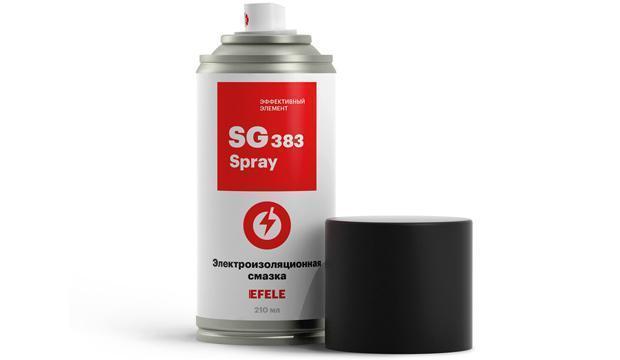

Contact lubricants are a good solution for those motorists who do not want to deal with wiring oxidation problems.


Watch this video on YouTube

